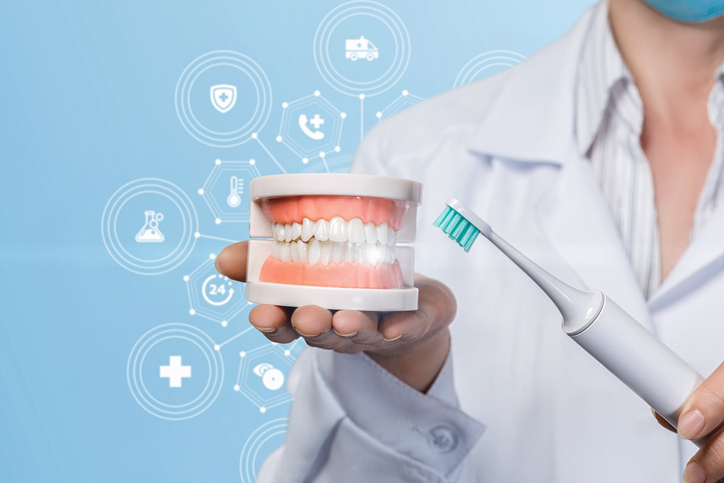
Gum disease, or periodontitis, is an infection. As it becomes chronic it changes to a particular type of infection called a biofilm infection. Infections can progress from an acute stage (initial infection) to a chronic stage (ongoing infection) fairly quickly if not treated immediately. This typically happens in three days or so. According to NIH at least 80% of all chronic infections are biofilm infections. Many scientists believe that figure is 100%. Gum disease is just one of those chronic biofilm infections.
Antibiotics are very effective in treating the cause of acute (fresh) infections. They may even help with some acute symptoms (like a fever or aches and pains) that may accompany a biofilm infection. But biofilms are highly resistant to antibiotics, to the point that antibiotics are ultimately ineffective against them. You could possibly kill a biofilm infection with antibiotics. The dose would have to be hundreds of times greater than is safe to stop an acute infection. In all cases that would be a fatal dose. Simply put, you cannot completely kill a biofilm infection using antibiotics in doses that are safe for use in people.
Many studies over the years have shown that chronic periodontitis (gum disease) can contribute to many other health issues. It can aggravate existing problems and sometimes cause new ones. For example, in a study at the Mayo Clinic 2/14/2020 it was determined that “The bacteria responsible for periodontitis can enter your bloodstream through gum tissue, possibly affecting other parts of your body. For example, periodontitis is linked with respiratory disease, rheumatoid arthritis, coronary artery disease, and problems regulating blood sugar in diabetes.” Harvard Medical School also explores the link between gum disease and heart disease.
Remember that maintaining the condition of your oral health is important to maintaining the condition of your overall health. Brushing, flossing, and rinsing with anti-bacterial or anti-microbial mouthwash are all important. See your dentist regularly for cleanings and checkups to make sure your oral health is in tip top shape.
Visit our information center to learn more about biofilms.